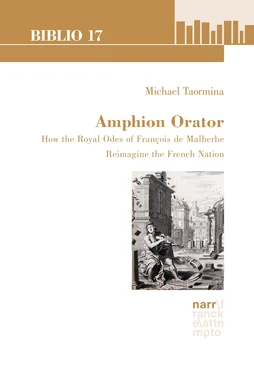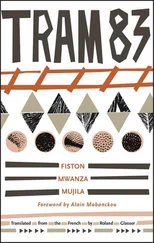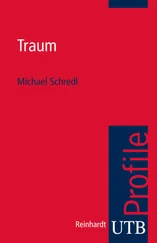Michael Taormina - Amphion Orator
Здесь есть возможность читать онлайн «Michael Taormina - Amphion Orator» — ознакомительный отрывок электронной книги совершенно бесплатно, а после прочтения отрывка купить полную версию. В некоторых случаях можно слушать аудио, скачать через торрент в формате fb2 и присутствует краткое содержание. Жанр: unrecognised, на английском языке. Описание произведения, (предисловие) а так же отзывы посетителей доступны на портале библиотеки ЛибКат.
- Название:Amphion Orator
- Автор:
- Жанр:
- Год:неизвестен
- ISBN:нет данных
- Рейтинг книги:4 / 5. Голосов: 1
-
Избранное:Добавить в избранное
- Отзывы:
-
Ваша оценка:
- 80
- 1
- 2
- 3
- 4
- 5
Amphion Orator: краткое содержание, описание и аннотация
Предлагаем к чтению аннотацию, описание, краткое содержание или предисловие (зависит от того, что написал сам автор книги «Amphion Orator»). Если вы не нашли необходимую информацию о книге — напишите в комментариях, мы постараемся отыскать её.
Amphion Orator — читать онлайн ознакомительный отрывок
Ниже представлен текст книги, разбитый по страницам. Система сохранения места последней прочитанной страницы, позволяет с удобством читать онлайн бесплатно книгу «Amphion Orator», без необходимости каждый раз заново искать на чём Вы остановились. Поставьте закладку, и сможете в любой момент перейти на страницу, на которой закончили чтение.
Интервал:
Закладка:
Jacques Morel has documented the poetic climate of Malherbe’s early years, finding almost identical rhetorical strategies and political imagery in the work of Bertaut, Du PerronDu Perron, Laugier de Porchères, Rosset, and Vauquelin des Yveteaux. Malherbe shares their use of a current event as a pretext for praising the virtues of Henri IV, their recourse to amplification, their heroic idealization of the king, and their occasional remonstration (Morel, “Henri IV et ses poètes” 214). But Malherbe sets himself apart from this crowded field in several important ways. First, if it need be said, Malherbe distills and clarifies the poetic tendencies of his contemporaries. He does what they do, only better. The prominence given to Malherbe’s poetry in Toussaint du Bray’s anthologies suggests the dominant reputation for eloquenceeloquence that Malherbe enjoyed in poetic circles, while the poet’s love letters and letters of consolation were coveted models of epistolary eloquenceeloquence.18 In Le Secrétaire de la Cour (1625), dedicated to Malherbe, Puget de La Serre declared: “you are the most eloquent of men” (ctd. in Winegarten, p. 18).
Second, building on Ronsard’s ennoblement of poetry in the 1550 Odes and the political engagement of Les Discours (1560-1584), Malherbe’s royal odes boldly chart a new political course. The kingdom’s leading orators preserved, even cultivated, a sacerdotal aura (FumaroliFumaroli, Marc, L’Âge 489), and this includes a royal magistrate like Guillaume Du VairDu Vair, one of Malherbe’s early mentors. However, despite typical commonplaces invoking Apollo, the Malherbian speaker is less a prophet than a statesman. The reimagination of the national communitynationnational community in the royal odes depends on the construction of a primarily civic relation between the poet and the reader as the crucial step toward reestablishing trust among subjects of the French king. That is why the notion of ethosethos, both moral and rhetorical, is so important. It is not simply a tool of persuasion; rather, its power to produce trust in an audience makes it a cornerstone of political community. The royal odes define it neither by poetic inspiration, nor by some transcendent link to God, but by practical reasonphronēsispractical reason ( phronēsis phronēsis), the moral virtuevirtues and, paradoxically, superior craftcraftsmanship. This latter is not as formalist as it might at first appear. If we understand craftcraft to mean artistic persuasion, induced by argument or style, then it has a causal relationship with eunoia [goodwill]ethoseunoia (goodwill), a quality perceived in the speaker but obtained through the production of pleasure and emotionemotion in the audience (GarverGarver, Eugene 110; AristotleAristotle, Rhet .AristotleRhetoric 2.1.5). In the royal odes, feelings of wonderwonder produced by elevated diction, metaphormetaphor, hyperbole, significatio figures of thoughtsignificatio [suggestion, significatiofigures of thoughtallusion], emphasis figures of thoughtemphasis [hinting], ratiocinatio figures of thoughtratiocinatio [inference], etc., and the pleasure afforded by figures of speech, smooth rhythms and rhyme, work in tandem with the emotionemotions inherent to civic relations: friendliness, confidence, and kindliness, but also anger, shame, and hatred (AristotleAristotle, Rhet .AristotleRhetoric 2.2-11). “The emotionemotions can be constitutive of particular judgments,” observes GarverGarver, Eugene, “because they are constitutive of the enterprise of judging and deliberating” (GarverGarver, Eugene 109). If the royal odes do not primarily judge or deliberate, they nevertheless lead the reader to affirm the values and beliefs, and to feel the appropriate emotionemotions, that create and support the imagined national communitynationnational community. Taking a page from Renaissance sacredeloquencesacred rhetorics rhetorics, they use emotionemotion to reaffirm the affective ties that bind monarch and subject and link subjects to one another. Their grandstylegrand style, in a manner similar to what AugustineAugustine advises, stirs up the full array of emotionemotions (admiration, joy, indignation, hatred, fear, anger, etc.), with the goal of transforming “will and heart” (ShugerShuger, Debora K. 48), not with love of God and of neighbor, but with love of king and of country.
This is the third way in which Malherbe’s royal odes distinguish themselves from contemporary poetic production: their reimagining of the national communitynationnational community according to loyalty and service pro rege et patria pro rege et patria [for king and fatherland]. This emotionemotionally-charged commitment echoes the quasi-secular patriotismpatriotism that arose in the 1590s, when France overcame the threat of dissolution and Henri went on the offensive against Spain. In La conscience nationale en France pendant les guerres de religion , Myriam YardeniYardeni, Myriam painstakingly shows how Catholicity, indeed, religion itself, lost its privileged position as the unifying thread of the nationnational tapestry. The royal odes reflect this development, exhibiting a stance in diametrical opposition to LeagueLeaguer propagandists who subordinated the French state to the Catholic faith and would have preferred the dissolution of the monarchypolitymonarchy to religious plurality—going so far as to strip the HuguenotsHuguenots of their nationnational identity by treating them as foreigners. In a way similar to what one finds in ProtestantProtestant tracts predating Henri’s accession to the throne, the royal odes decouple religion and nationnation, while the implicit freedom of conscience that they grant to the ProtestantProtestant minority presupposes the arguments for tolerance staked out early on in the conflict by royalist Politiques concerned with national unitynationnational unity. Patriotismpatriotism, that is, one’s commitment and service pro rege et patria pro rege et patria, subordinating one’s private and partisan interest to the collective good, is henceforth to constitute the unifying thread of the nationnation. Malherbe has equally harsh words for ProtestantProtestants and Catholics whenever powerful nobles from either group revolt against the new regime. Similar to royalist pamphlet propaganda from the 1590s, the royal odes treat all political adversaries as traitors, bad Frenchmen, and propose instead that the nationnation prefer the legitimate monarch and choose the public goodcommonwealthpublic good. The same gamut of patriotic feelingpatriotismpatriotic feeling, fervor, sentiments, or national sentimentnationnational sentiment, which burst forth in the 1590s, animates the odes: wonderwonder, pride and gratitude inspired by the monarch; hatred, fear, and indignation directed at the rebels; joy, hope, and emulation shared by all good Frenchmen. If such patriotismpatriotism is always mediated by loyalty to the monarch, this is certainly because the monarchy is the only remaining symbol of national unitynationnational unity, but also because the Bourbons have demonstrably, or so Malherbe contends, put the general welfarecommonwealthgeneral welfare of the nationnation ahead of every other consideration, thereby proving that they deserve to rule. Working from ideological assumptions that emerged only toward the end of the Wars of ReligionWars of Religion, the royal odes propose to complete what has been only imperfectly accomplished.
What is noteworthy, moreover, about their subordination of religion to the state is that the monarch and the patrie nationla patrie [nationnation] occupy a transcendent position usually reserved for divine things eliciting love, joy, awe, and reverence. The Wars of ReligionWars of Religion disrupted the coincidence of two separate obligations, rex [king] and patria nationpatria [fatherland; nationnation; country], and the odes attempt to make them coincide once again, with the difference that the Church is henceforth subordinate to patria nationpatria. In KantorowiczKantorowicz, Ernst H.’s terms, amor patriae [love for the nationnation] has not simply been set against the corpus mysticum [mystical bodymystical body (of the king)] of the Church, but raised above it. The king’s virtuevirtue, so superlative as to be quasi-divine, should be seen as a reflection of the nationnation, that is, collective qualities inflected through this particular individual. To say that the king is the embodiment of the nationnation is to point to the king’s two bodies, the one collective (the body politicbody politic) and the other personal (the physical body). But it is this latter that serves as the concrete, sensuous representation of what cannot be otherwise directly perceived. The obscure forces operating behind the opportune arrival of this savior of the nationnation at this juncture in history, as well as behind the king’s extraordinary feat of turning back the tides of destruction that threatened to engulf the nationnation, are causes that one cannot fathom—although they go by various names in the odes: Dieu [God], le grand démon de France [the great daemondaemon of France], les destins [destiny]—and they constitute the imperceptible grounds of wonderwonder. Because the king’s will is the expression of the divine will, his person mediates the special relationship that allegedly exists between God and the French nationnation. As Christ is where God and humanity intersect, so the king is where transcendent forces and the French nationnation meet. The odes’ patriotismpatriotism is not a religion, but their God is a nationnational God. Only in the case of Marie de Médicis does the image of the French monarch begin to approach something like a world redeemer. Numinous feelings of awe, reverence, hope, and fear projected onto the monarch reflect back on the patrie nationla patrie [nationnation]. Thus the patriotismpatriotism of the odes and their project of sacralization are related: sacralization demobilizes resistance to the new dynasty even as it elevates the monarch as the pattern of amor patriae [love of country], the proper affective commitment to the public goodcommonwealthpublic good. Such a model is charged with powerful emotionemotions but also redirects them toward the nationnation.
Читать дальшеИнтервал:
Закладка:
Похожие книги на «Amphion Orator»
Представляем Вашему вниманию похожие книги на «Amphion Orator» списком для выбора. Мы отобрали схожую по названию и смыслу литературу в надежде предоставить читателям больше вариантов отыскать новые, интересные, ещё непрочитанные произведения.
Обсуждение, отзывы о книге «Amphion Orator» и просто собственные мнения читателей. Оставьте ваши комментарии, напишите, что Вы думаете о произведении, его смысле или главных героях. Укажите что конкретно понравилось, а что нет, и почему Вы так считаете.












